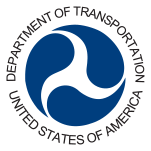Who is DOT OIG's Whistleblower Protection Ombudsman?
The Inspector General has designated Jason Weidenfeld as the Office of Inspector General’s (OIG) Whistleblower Protection Ombudsman, tasked with educating U.S. Department of Transportation (DOT) employees about prohibitions against retaliating against Federal whistleblowers and their specific rights and remedies. However, the Ombudsman cannot act as a legal representative, agent, or advocate for DOT employees. Mr. Weidenfeld can be reached at: 202-366-1514.
What is Whistleblowers Retaliation?
Whistleblower retaliation is an adverse action in response to a protected disclosure of information. Retaliation includes almost any personnel action, failure to take a personnel action, or threat to take or fail to take a personnel action, which adversely affects the whistleblower, such as:
- A non-promotion
- A disciplinary action
- A detail, transfer or reassignment
- An unfavorable performance evaluation
- A decision concerning pay, benefits or awards
- A significant change in duties, responsibilities or working conditions
Who is Protected from Whistleblower Retaliation?
- DOT Employees
- Employees of DOT contractors
- Employees of DOT subcontractors and grantees for contracts that were entered into after July 1, 2013 and some contracts that were modified after July 1, 2013
- Employees of American Recovery and Reinvestment Act (ARRA) fund recipients, including State and local governments, contractors, subcontractors, grantees or professional membership organizations acting in the interest of recovery fund recipients
If you work for a private-sector transportation employer (such as an air carrier, motor carrier, or pipeline operator), other laws may protect your whistleblowing. These statutes are enforced by the Department of Labor. Visit www.whistleblowers.gov for additional information.
What Types of Disclosures are Protected?
In order for your disclosure to be protected, you must have a reasonable, good faith belief that the allegations you are disclosing are truthful. There are five types of protected disclosures:
- A violation of law, rule, or regulation
- Gross mismanagement
- Gross waste of funds
- A substantial and specific danger to public health or safety
- An abuse of authority
Where Can You Report a Complaint of Whistleblower Retaliation?
OIG Hotline:
If you are a DOT employee, an employee of a recipient of Recovery Act funds, an employee of a DOT contractor or an employee of a DOT subcontractor, or grantee on a contract entered into or subject to a major modification after July 1, 2013 you may file a complaint with the OIG Hotline. (For more information on special protections for DOT and non-DOT employee whistleblowers involving ARRA funds click here.)
Office of Special Counsel (OSC):
If you are a Federal employee, including a DOT employee, and wish to report a prohibited personnel practice, including whistleblower retaliation, you may wish to file a complaint directly with the OSC. The OSC is an independent federal investigative and prosecutorial agency with the responsibility to receive, investigate, and prosecute allegations of whistleblower retaliation. Unlike the OIG, the OSC has authority to seek corrective action from DOT by negotiating with the DOT agency involved or, if that is unsuccessful, by filing a complaint with the Merit Systems Protection Board (MSPB) to enforce corrective action for the whistleblower and initiate disciplinary action against the individual responsible for the retaliation. Corrective action might include ordering a promotion, cancelling a disciplinary action, payment of back pay, compensatory damages, and attorney’s fees. For more information on how OSC processes complaints, click here.
U.S. Office of Special Counsel Certification
The Office of Inspector General's compliance with 5 U.S.C. 2302(c) obligations to inform DOT's workforce of their rights and remedies under the prohibited personnel practice and whistleblower protection provisions of chapters 12 and 23 of Title 5 has been certified by the U.S. Office of Special Counsel. This certification is effective through December 2017.
Secretary's Memorandum to All DOT Employees
On January 23, 2015, Secretary of Transportation Anthony Foxx highlighted his support for ongoing cooperation with the Office Of Inspector General through a Department-wide memorandum. In his memorandum, the Secretary reminded DOT employees that reprisals against employees who provide information or report allegations of waste, fraud, and abuse to OIG are against the law and Departmental policy.
